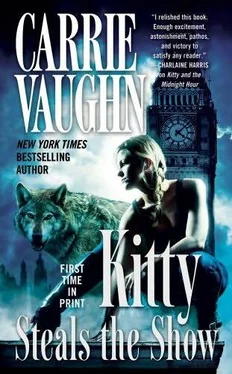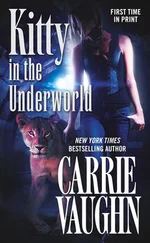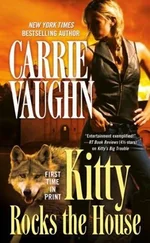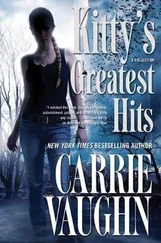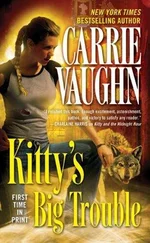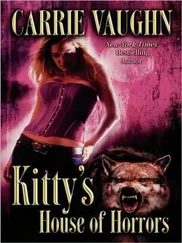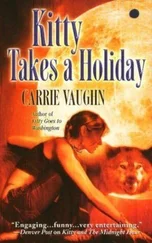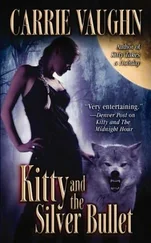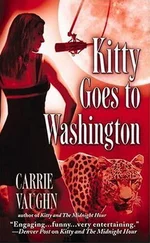The city was a mix of ancient, modern, and everything in between. Nineteenth-century brick row houses mingled with 1960’s concrete office blocks, then suddenly the gray stone spire of an old church would rise in the distance, past supermarkets and subdivisions. Springtime made everything green—green lawns in parks, a bright green fuzz on trees, carpets of daffodils blooming on roundabouts. I had to quell an instinctive panic from being on the wrong side of the road.
London proper was a big city, with countless traffic-filled streets, tall buildings occupying entire blocks, and the sense that I had seen all this before in a movie. I imagined people felt the same thing when they visited New York City or Los Angeles.
Ben nudged me. “Kitty, look.” He pointed out the window to an iconic red double-decker bus. I started to “ooh” in admiration, when I realized he was actually pointing to the ad on the side of the bus: MERCEDES COOK IN CONCERT, THIS WEEK ONLY! The vampire’s gorgeous, smiling picture showed her in a spectacular black sequined gown, arms flung out to take in the audience she was singing to.
Oh, just great. Just horrible .
If I was the world’s first celebrity werewolf, Mercedes Cook was its first celebrity vampire. She’d been a star on Broadway since the sixties, and people had started to notice that she was looking remarkably well-preserved for her age. She hadn’t graduated to crazy mother and grandmother roles like most of the actresses of her generation. Turned out she was well preserved because she was undead. A vampire. She broke the story on The Midnight Hour, and I’d thought we were friends. Right up until she plotted to get my friend Rick killed, to prevent him from taking over as Master of Denver. She failed, he took over, and sent Mercedes packing.
So, at some point this week I was probably going to have to face the vampire who tried to take over Denver, probably on behalf of my archnemesis.
“That’s so not cool,” I stated.
“Ned called a truce, right?” Ben said. “What can she do?”
“I hesitate to even imagine,” I said.
“What you’re saying is I ought to keep a couple of stakes handy,” Cormac said.
“You mean you don’t anyway?” I said.
He shrugged. “There’s handy, then there’s handy.”
We rounded a corner and passed a stretch of sloping lawn lined with trees that were brilliant with new foliage. Andy identified it as Hyde Park. Wolf perked up her ears at the wide open space in the middle of the city—would it be useful in a pinch? I didn’t particularly want to find out. But as urban pastoral spaces went, the place was gorgeous.
I’d asked Ned and Emma about the local werewolves, and he’d said he’d be sure to introduce me to the alpha at the earliest opportunity. When, I’d whined, and he’d promised it’d be soon. Would the alpha be at the conference? At the vampire convocation? If I’d had the time, I’d have gone looking for werewolves myself. I’d heard that London was a good city for lycanthropes: tolerant, serving as it had as a crossroads for the world since the days of the British Empire, Indian were-tigers rubbing elbows with were-lions from Africa, and so on. I wanted to see it for myself.
There’d be time.
The neighborhood where Ned’s place was located looked like it had traveled through time: blocks full of stately façades, rows of windows, decorated molding, wrought-iron accents, elegant in the midday light. I flashed on any number of Jane Austen films or Sherlock Holmes reruns on PBS. There should have been fancy horse-drawn carriages clopping past.
The car turned onto an impossibly narrow lane packed with town houses, and through a gateway into a small, cobbled yard with a lovely, reaching tree in the corner. The building overlooking the yard was four stories of pale brick. The windows had white frames and stone balconies to lean on, and the roof was made of sloped gray slate.
Andy let us in through the front door. The interior was as much a time capsule as the neighborhood. A vestibule let out into a parlor with brocade wallpaper, age-darkened paintings decorating the walls, a carved mahogany mantelpiece over a marble fireplace, and so on.
“He did say make ourselves at home, right?” Ben said. “I feel like I’m going to break something.”
“It does feel a little like a museum, doesn’t it?” I said.
Cormac gave a shrug and slumped into a velvet-upholstered wingback chair, sprawling out and propping his booted feet on what must have been an extraordinarily valuable lacquered circular coffee table. “It’s a little much,” he said.
I had to admit, the right kind of vampire hospitality was impressive.
We were directed to bedrooms upstairs. There were six, and we got to pick. I pounced on the one in the corner, with a view down the street which gave me the feeling of falling back through time. I could imagine the horse-drawn carriages, the women in huge bell skirts and men in frock coats, walking on the cobbled streets, the glow of gaslights and smoke curling from clay chimneys.
We battled jet lag by taking a walk. Found Hyde Park, then Green Park, and explored all the way to Buckingham Palace, which seemed even more excessive with all its gilt, statuary, and unflinching guards. Thinking of someone living there was a little like thinking of someone being a billionaire. I had no frame of reference.
“What do you think of Ned?” Ben asked us both.
“He’s a vampire,” Cormac said. “Talks a lot. Who knows what he really wants.”
“I’m still getting over him knowing Shakespeare,” I said, sighing.
“Don’t get too starry-eyed,” Cormac warned.
“I know,” I said. “I don’t know what to think. Alette trusts him or she wouldn’t have put me in touch with him. He seems to be taking good care of Emma.”
“They’re all vampires,” Cormac said. Which meant that we ought to be careful about trusting any of them, including Emma.
“We don’t have to stay at Ned’s place,” I said. “It’s not too late to find a hotel.”
We walked several steps before Ben said, “It’ll be fine. This way we can keep an eye on him, right?”
Cormac made a noise that was almost a laugh.
* * *
AFTER A good night’s sleep, Ben and I went downstairs in the morning to find breakfast—and Cormac—waiting in the dining room. We learned that Ned and Emma had arrived before sunrise, after we’d gone to bed, and that we would see them this evening.
Eggs, tea, toast, slices of thick bacon, stewed tomatoes, and beans—which had never even occurred to me to eat for breakfast—waited on expensive-looking china, dense with a blue floral pattern around the edges. One of the staff stood by and seemed pleased at my gaping reaction. Cormac was cleaning up the last bit of egg yolk with a piece of toast.
“Don’t wait for us or anything,” Ben said.
“You’re not going to need me the next couple of days, are you?”
“Why?” I said.
“It’s Amelia,” he said. “She wants to check some things out.”
“What, like her old haunts? No pun intended.”
“Her older brother had kids. Assuming they had kids … she may still have family.”
“That’s so weird,” I said absently. He was talking about kids who were born over a hundred years ago—tracking a family tree for real. “What happens if you do find these great-grandnieces or nephews?”
“Cross that bridge when we get to it,” he said, spreading butter on a second slice of toast, not looking at us.
“You okay with this?” Ben said. “Is she making you do this?”
“I want to do this. Why do you follow Kitty around on her crazy expeditions?”
“Hey,” I said, and Ben snorted a chuckle. I considered what Ben’s answer to that question might be, and what that said about Cormac’s answer. I didn’t know why I was worried—he could take care of himself. Rather than dig, I said, “You’re sure we’ll be okay without you standing guard?”
Читать дальше
